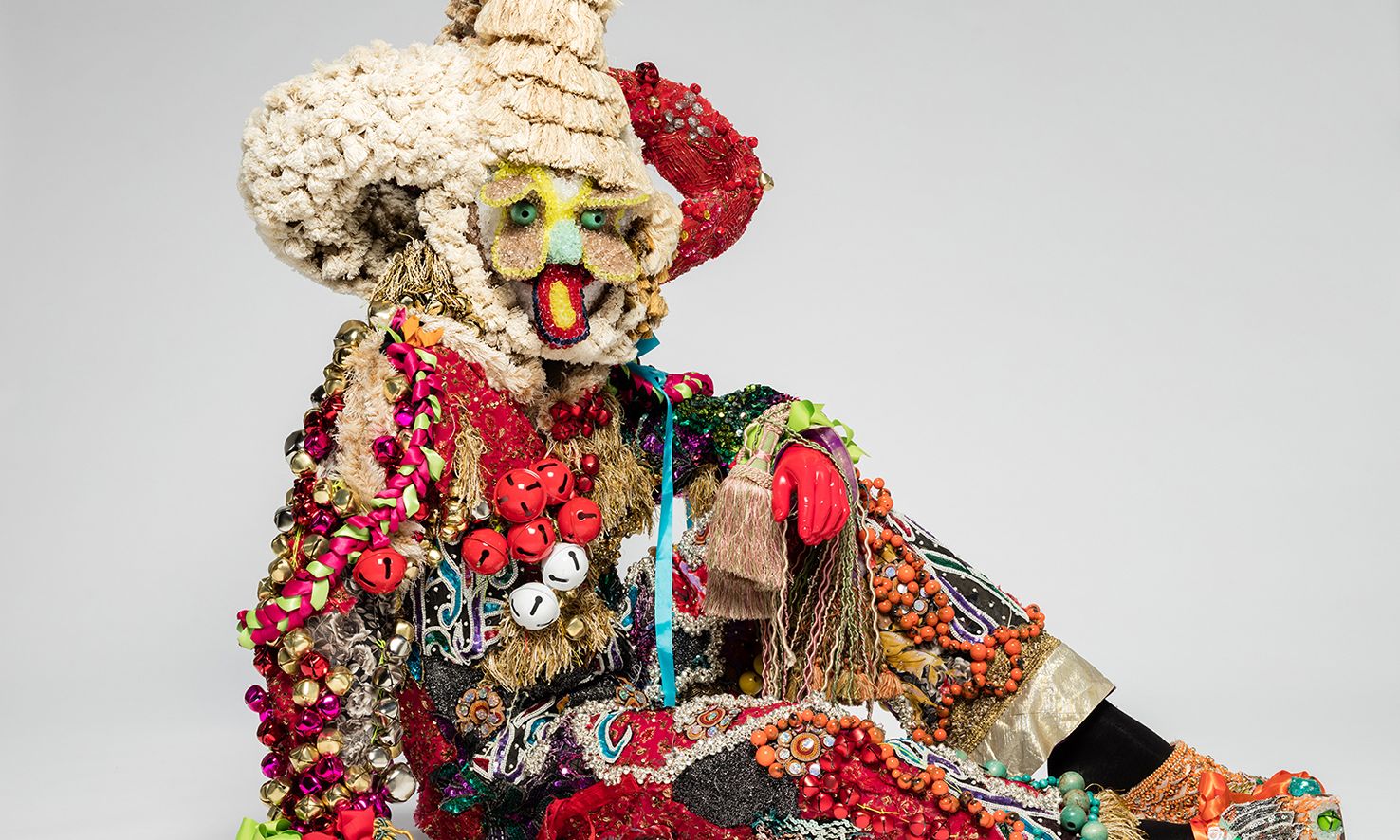Raúl de Nieves includes Catholic and Mexican motifs in his work, such as Fina Wisdom (2019)
Courtesy the artist
The Big Easy wears its rich and complex history on its sleeve, but as the co-curators of the sixth edition of the city’s triennial, Miranda Lash and Ebony G. Patterson, see it, the city has its feet firmly planted in a future that awaits all of us.
“We wanted to upend the narrative of New Orleans being behind,” says Lash, the senior curator of the Museum of Contemporary Art Denver. “What we aim to underscore with this iteration is how the discourse around climate disasters and systemic inequities has migrated. When Prospect.1 opened [in 2008], it was still thought of as something specific to New Orleans and places like New Orleans, whereas now, as a globe, we are grappling with climate change and the need to address historical reckonings.”
Their exhibition’s title, The Future is Present, the Harbinger is Home, reflects this reframing of New Orleans as a place that is ahead in confronting the threat of climate change and the traumas of racial violence and systemic inequity. It also draws connections between the city and places with similar relationships to the effects of extractive industries, rising sea levels and the legacies of colonialism.
One of the most prominent triennial venues is Harmony Circle, a traffic roundabout previously known as Lee Circle and whose bronze monument to the Confederate general Robert E. Lee was one of several taken down around the city in 2017. It will host a new large-scale installation by the Mexican American artist Raúl de Nieves, as well as a series of events (including a drag wrestling performance) during the exhibition’s opening weekend. “To have a Latinx artist at Harmony Circle is our way of foregrounding the importance of Latinx immigrants within New Orleans,” Lash says.
The curators will also highlight the city’s Southeast Asian community. The Vietnamese American artist Tuan Andrew Nguyen will debut a new film, Quietly Amongst the Disquiet (2024), with a live performance of its soundtrack during the opening weekend.
In addition to prominent public commissions and displays at the city’s art institutions, a new hub for this edition of Prospect is the century-old former Ford Motor Plant in Arabi, just east of New Orleans. It will host large-scale projects by 12 artists including a full-size airport luggage conveyor belt system filled with sculptures by the Korea-born, Colorado-based artist Maia Ruth Lee, and a replica of the Millennium Falcon, the famous Star Wars vessel, made from adobe by the Los Angeles artist rafa esparza.
“A big part of why we needed a bigger venue was because artists have really answered the call,” Patterson says. “At the beginning of this process, two years out, Miranda and I asked the artists: ‘What would it mean to make your most ambitious work here?’ The other thing we put forward to them is to think of themselves as harbingers. A biennial or a triennial is a harbinger, because it signals conversations that are happening, not just from the point when it opens and becomes accessible to the public, but about the discourses that will be happening going forward.”
• Prospect.6: The Future is Present, the Harbinger is Home, various venues, New Orleans, 2 November-2 February 2025

